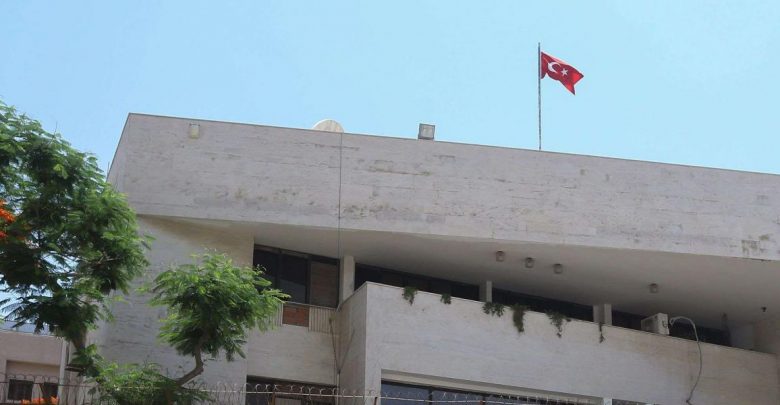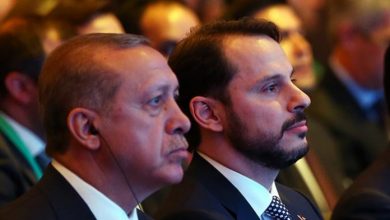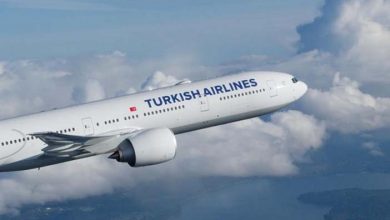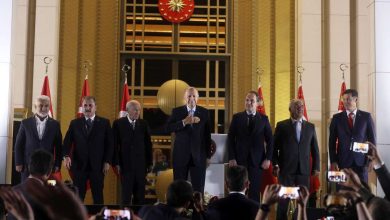Libya’s Haftar might seek deescalation with Turkey
However, the ideology of these groups “varies vastly in terms of their religious leaning.”

The proxy conflict in Libya appears to have been heating up with Libyan National Army (LNA) General Khalifa Haftar making threats against Turkey, which backs his Government of National Accord (GNA) opponents in Tripoli. Turkey has been supplying the GNA with additional arms to help it repel the LNA’s siege of Tripoli, which began in April.
The GNA achieved a significant tactical victory against its LNA adversaries in late June when it captured the strategically-important town of Gharyan, south of Tripoli, hitherto used by the LNA as a major supply line.
On June 30, the LNA claimed it destroyed a Turkish-made Bayraktar drone in an air raid on Tripoli’s Mitiga Airport. The LNA announced a ban on all flights coming from Turkey and said it would target Turkish vessels in Libyan waters and arrest any Turkish nationals in areas it controls. Turkish President Recep Tayyip Erdoğan declared that Haftar is “nothing but a pirate”.
The LNA detained six Turkish sailors, but then promptly released them after Turkey warned it would consider the LNA a “legitimate target” as long as the men were held.
“Haftar is escalating against Turkey because Egypt and the UAE are telling him to do it, but Haftar needs to tread carefully,” said Nicholas Heras, Middle East Security Fellow at the Center for a New American Security. “He is trying to take on not only a powerful state actor, he is also taking on a NATO member.”
Abu Dhabi and Cairo, he explained, were seeking “to assert their dominance in Libya” through supporting Haftar. This comes at a time when Turkey is “rapidly increasing its own leverage on the ground”.
Heras argued that “an escalation between Ankara, Cairo and Abu Dhabi would be a big problem for Haftar”.
“Turkey has shown the ability to have a long reach in Libya, and while Haftar might be looking to deescalate with Turkey now,” he said.
Turkey has supplied its GNA allies with Turkish-made weaponry. Ankara has delivered Bayraktar TB2 drones along with a fleet of BMC Kirpi mine-resistant vehicles and several small arms smuggled into the country in recent years.
“In addition to their political support, Turkey provides arms, material support, and adversarial support to forces that fight on the GNA’s behalf,” said Yousef Eltagouri, a contributor to the Foreign Policy Research Institute, where he focuses on the Libyan conflict.
“Other countries that back the GNA have not provided arms and material support as publicly as Turkey has,” he said.
The LNA accuses Turkey of supporting terrorists fighting under the GNA’s banner. Eltagouri said it was not that straightforward.
“Turkey is directly backing militias under the GNA banner,” he said. “There are most definitely militias that are driven by a collective religious ideology, and that have similar foresight as to long-term goals for the state.”
However, the ideology of these groups “varies vastly in terms of their religious leaning.”
“Currently, they are fighting together against a common enemy, but in recent years these militias have more often been fighting among themselves over control of west Libya,” Eltagouri said. Control over Libya’s resources “takes priority over ideological adherence for numerous militias,” he said
The majority of the militias in Libya today, regardless of whether they fight for the GNA or LNA, “are to some degree Islamist.”
“The primary reason for Turkey’s support to the GNA is as a counterweight against the Saudi Arabia-UAE-Egypt power bloc that backs the LNA,” Eltagouri said.
“Considering the critical stance that the bloc takes on the Muslim Brotherhood, backing GNA militias in their fight against a Saudi Arabia-UAE-Egypt proxy, falls in line with Ankara’s ambitions throughout the region.”
Militarily the LNA remains the more powerful of the two Libyan factions according to Arnaud Delalande, a freelance defence and security analyst.
“If we consider the past five years, the UAE military support to the LNA far exceeds Turkey’s support for the GNA,” Delalande said.
“On the other hand, since early April and the offensive on Tripoli, the balance of power has largely diminished, particularly with the delivery of armed drones, which are of crucial importance for the GNA,” he said.
Tarek Megerisi, a Policy Fellow at the European Council on Foreign Relations and analyst who specialises on Libya and has written about this proxy war in-depth, believes that Haftar’s blockade “was just rhetorically symbolic, as he lacks the means to properly enforce such a blockade, nor would he wish to suffer the consequences should his force transgress and kill a Turkish civilian or officer.”
“I think Haftar’s lashing out at Turkey was an attempt to both transplant blame for his defeat away from any failure of the LNA’s and to validate what was going to be an upcoming escalation from his regional supporters,” Megerisi said.
“Shortly after his statement the first rumoured introduction of foreign F-16s were made.”
Delalande said that any introduction of F-16s into the conflict was likely either Egyptian or Emirati jets deployed to Egypt.
“It’s more discreet given the current context,” he said.
An explosion destroyed a migrant detention centre in Tripoli on July 3, killing an estimated 53 people. The GNA allege that a UAE Air Force F-16 carried out the attack.
Megerisi doubts that the LNA would escalate tensions much further since they “profit immensely from selling scrap metal to Turkey, and the Libyan market place depends on Turkish produce.”
“So any actual blockade of Turkish maritime traffic would hurt the LNA’s finances and the Libyan population more than anyone else,” he said.
The destruction of the Turkish drone “shows Haftar views Turkish assistance as a significant threat.”
“In the wider context of the war this is just another development in the back and forth between the sides for air superiority, and it is not hugely significant as it is not the end of Turkish drones on the side of the GNA,” he said.
Haftar’s swift release of the six captured Turkish sailors “certainly deescalated tensions which were spiralling too quickly for anyone’s comfort.”
“I think Haftar realised that he was coming close to crossing a line and escalating the conflict in a manner he didn’t want,” Megerisi said.
“Currently the war is between two loose coalitions, if the war continues to drag on for a long time then those coalitions could splinter … creating a constellation of conflicts which are loosely related,” he said.
Source: Ahval




